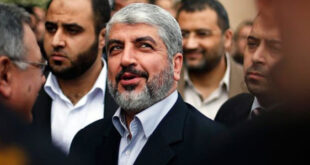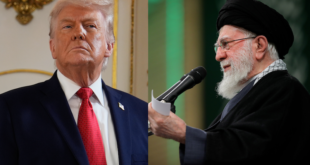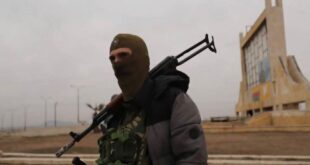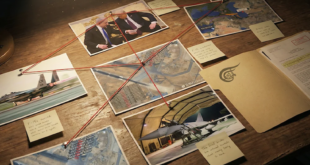 Muasher refutes Washington Post article on US plans to move military equipment to Jordan to pressure Damascus
Muasher refutes Washington Post article on US plans to move military equipment to Jordan to pressure Damascus
THE UNITED STATES expressed concern Thursday at the delay in questioning of six Syrians about the assassination of Lebanon’s former prime minister, and reminded Damascus of the UN demand for full cooperation in the investigation.
The Syrian government has so far opposed chief investigator Detlev Mehlis’ request to conduct interviews with the Syrian officials in Lebanon, proposing instead that it be done elsewhere.
US Ambassador John Bolton, when asked by reporters how to break the impasse over a location for the interviews, said that “it’s important to let Mehlis pursue this.”
But he said the resolution adopted by the UN Security Council on October 31 on Mehlis’ investigation of the February 14 truck bombing that killed Hariri and 20 others was “unambiguous”.
“It called for full and immediate Syrian cooperation,” Bolton said, “and I’d say we are concerned that as days go by, and we get close to the end of the mandate on December 15, each day that goes by makes it harder for Mehlis and his colleagues to finish their work and give us a definitive recommendation.”
“So we hope this doesn’t take too long to resolve, but fundamentally we want to express support for Mehlis,” he said.
Mehlis’ interim report into the assassination issued last month implicated Syrian and Lebanese intelligence services in Hariri’s murder, and accused Syria of only limited cooperation.
Syria repeatedly has denied any role in the killing, but its opponents in Lebanon accuse Damascus of ordering the slaying because Hariri had increasingly resisted Syria’s control of Lebanon.
Syria withdrew its soldiers from Lebanon in April under intense international pressure, ending a 29-year presence in its smaller neighbour.
The October 31 resolution — co-sponsored by the United States, France and Britain — warns of possible “further action” if Syria doesn’t fully cooperate with the Mehlis probe. It was adopted under Chapter VII of the UN Charter, which is militarily enforceable.
“Our hope is that he’ll come to us and tell us that he’s getting cooperation,” said Britain’s UN Ambassador Emyr Jones Parry.
“If he doesn’t come with that message, and if he comes sooner rather than later and tells us that he’s not getting the cooperation, then the council will have to react to that.”
According to Lebanese officials and media, Mehlis has summoned six senior Syrian security officials, including Syrian President Bashar Assad’s brother-in-law, Gen. Assef Shawkat, chief of Syria’s military intelligence service, for questioning over Hariri’s killing.
Syria’s UN Ambassador Fayssal Mekdad said Tuesday that Syria opposes Mehlis’ request to question the six officials in Beirut because returning them to Lebanon could create problems between the two countries.
He said Syria offered Mehlis the opportunity to interview the Syrians at the headquarters of the UN observer force on the Golan Heights, at the Arab League office in Cairo, or at UN facilities in Vienna and Geneva.
“We hope that Mr Mehlis does not rule out all these possibilities, because at the end of it what’s requested is the substance — not the form,” Mekdad said in an interview.
In Beirut on Wednesday, UN Undersecretary General for Political Affairs Ibrahim Gambari pressed Syria to respond quickly to Mehlis’ request, warning that “time is limited.”
Speaking at a joint press conference with Lebanese Prime Minister Fuad Siniora, Gambari said.
“It is important for the United Nations that Syria cooperate with Mehlis.”
UN deputy spokeswoman Marie Okabe said Secretary General Kofi Annan spoke to the Syrian president on Monday about the Mehlis investigation, but gave no details.
In Amman, meanwhile, Deputy Prime Minister Marwan Muasher refuted what was reported Wednesday in a Washington Post article that the US was planning to move some military equipment from its Arab Gulf bases to the Jordanian-Syrian border in order to pressure Damascus.
“The article is baseless and aims at damaging Jordan’s image,” the Jordan News Agency, Petra, quoted Muasher, also government spokesperson, as telling JTV on Thursday.
“The writer was talking about his own opinion. The Kingdom’s relations with the US are strategic and solid. Jordan has nothing to hide.”
In the opinion section of The Washington Post, William M. Arkin, reportedly an expert on military and security issues, claimed: “According to US military documents I’ve obtained, for example, the United States currently has $4.1 billion in “prepositioned” assets, mostly in Oman, Qatar and Bahrain, and is planning to shift some of those munitions from Oman and the Gulf countries to Jordan, evidently readying itself for both beefed up and closer bases to Syria.”
 Eurasia Press & News
Eurasia Press & News



